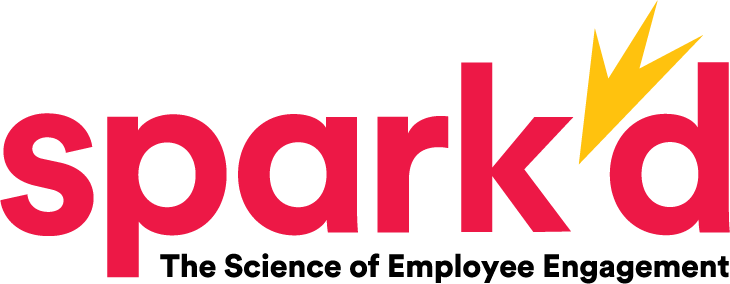Taylor Swift: 3 Key Lessons for CEOs
In the entertainment world, few figures shine as brightly as Taylor Swift, whose recent Eras Tour not only shattered records but also sparked a broader conversation about leadership and workplace culture.
With over $1 billion in gross revenue, Swift’s tour redefined what it means to be a successful artist, but it’s her actions beyond the spotlight that reveal invaluable lessons for leaders across all industries.
The Numbers Behind the Magic: A Closer Look at Taylor Swift's Record-Breaking Tour

Before we get into it, let’s look at the financials. After all, most CEOs I know start with the numbers:
- The Eras Tour has grossed over $1 billion, making concert history as the first billion-dollar tour, according to The Wall Street Journal.
- The Eras Tour made more than $780 million on the U.S. leg of the Eras Tour, according to Forbes.
- The pop superstar sold 2 million tickets for her Eras Tour on November 15th, 2022—the most tickets ever sold for an artist in a single day, according to Ticketmaster.
Investopedia outlines many other record-breaking successes if you are interested.
Here’s the stat I want to highlight: “She was ranked third on Forbes’ list of America’s Richest Self-Made Women Under 40 in 2022.”
Self-made? Really? Not possible. This is not to diminish her accomplishments; instead, I challenge the title as myth making, whereas, Swift herself, recognizes the illusion of this.
Lesson #1: Acknowledge the Role of Your Frontline Teams in Your Success Through Bold & Generous Actions
Swift first got my attention in August 2023, when she wrote handwritten notes to each of her truck drivers, accompanied by a $100,000 bonus. For me, this was a wow. Acknowledging the role and importance of a group of front-line workers in such a significant manner was not something I remembered hearing about.
Let’s really look at the magnitude of this. Recently, according to Reuters, Walmart announced 700,000 workers would be eligible for annual bonuses of up to $1,000. Really? Its revenue is over $900 Billion annually!
At Spark’d, our research shows that compensation does not typically drive passion at work, as most companies pay according to market studies which lead to few differences in compensation across industries.
Whereas Taylor’s actions were perceived by the trucking company’s CEO as “life changing” and generous; whereas, I am left underwhelmed by Walmart’s not-so-bold move.
The lesson in this is that Swift understood how to make a difference to people and to a profession largely taken for granted by consumers and industries alike.
When I worked corporately, I was a manager in a very large corporation that grossed millions annually. A career entry point into the company was through the Customer Service Department. These were the people who handled complaints and problems from the public, a high-pressure job that was fraught with difficult conversations and challenging problems. And, it was one of the lowest paid jobs in the company. Whenever salary increases for this group were raised, there was tremendous resistance by management.
At the end of the day, leaders did not see or acknowledge the tremendous value these individuals brought to the company. In the end, most burned out from under appreciation, both emotionally and financially.

Lesson #2: Stand Up for What You Believe and Stay Connected to Your Personal Values
In 2015, Apple Music was about to be born, and Apple announced that it was not going to pay artists royalties during the 3-month trial run. Swift came out strongly against the policy stating it was “shocking, disappointing, and completely unlike this historically progressive company.” Then, she pulled her “1989” album from the service and wrote passionately about why Apple owes it to musicians and songwriters to compensate them for their labor. My favourite line from her open letter? “We don’t ask you for free iPhones. Please don’t ask us to provide you with our music for no compensation.” The following day, Apple reversed its decision.
I purposely selected this example as it was almost 10-years ago; yet, I remember it well; and, this was years before I knew her music, which was introduced to me by my teenager in recent years only.
At 26 years old, Swift did not hesitate to speak out and advocate, not just for herself but for all artists in her industry. She also confronted Apple about its values by acknowledging their legacy of being progressive and contrasting that to the current direction of trying to leverage their success at the expense of others. Tim Cook was only four years in as Apple’s CEO and I give him credit for reconsidering the decision, along with his vice-president, Eddy Cue. Admitting mistakes and making them right also demonstrates strong leadership.



Having worked with CEOs for many years, I have often witnessed a hesitation to speak out on matters that are uncomfortable. Recently, issues around race and equity emerged with a client and the CEO’s reaction was to ignore the broader dynamics and focus on individual behaviour, a more comfortable discussion.
Asking yourself, what is the right thing to do versus the convenient thing, is sometimes a difficult question. Dilemmas can emerge; however, I have never heard anyone express regrets about remaining true to themselves, whereas, I have often heard people regret not speaking up when they could have made a difference.
At Spark’d, when looking at over 20 years of data, we know that one of the critical drivers of engagement at work is people feeling like they are able to live their personal values at work. This applies to everyone, from frontline workers to CEOs. Staying true and authentic is key to living a passionate work experience.
Lesson #3: Express Gratitude While Having Fun Together!
Celebration is the #1 driver of engagement at work. We have been able to prove that time and time again through our research. However, by celebration, we don’t mean just hosting social events, such as happy hours or end-of-summer parties. For celebration to be a driver of passion at work, it needs to be in the context of a work accomplishment.
After the success of the 1989 World Tour in 2015, which generated $250 million in global ticket sales, Swift took 125 crew and band members on an all expenses paid vacation to an Australian resort to celebrate the end of the tour (the tour ended in Australia) and her birthday!
When people have worked hard and now need time to acknowledge their accomplishments, rejuvenate and uplift themselves, celebration is powerful. Instead of simply winding down the tour and everyone heading home, Swift marked the closing of the project with something special without saying, “We don’t have a budget for that.” How many times have I heard that comment when it comes to celebrating a true business success??
Perhaps it might be a good idea for CEOs to set aside a budget for bonuses and celebrations appropriate to the scale of the success? If people have delivered big then the acknowledgement and expression of gratitude should be big. Instead, we wait until the end of the year, often forgetting contributions made at the beginning of the year and defaulting to a standard bonus and most of the time, no celebration and few expressions of gratitude.
Infusing the workplace with celebratory energy, when achievements are meaningful or significant, creates a culture of gratitude, while also building resilience and perseverance.
Swift advocates for a kinder workplace (and world) and she demonstrates what that looks like at scale, from generous bonuses totalling $5 million, to advocacy for an industry, to gratitude for fans and staff alike! We can all learn something from Swift’s business practices.

